BMW i7 vs Mercedes EQS - Differences and prices compared
Compare performance (659 HP vs 544 HP), boot space and price (99200 £ vs 93900 £ ) at a glance. Find out which car is the better choice for you – BMW i7 or Mercedes EQS?
Costs and Efficiency:
Looking at overall running costs, both models reveal some interesting differences in everyday economy.
Mercedes EQS has a minimal advantage in terms of price – it starts at 93900 £ , while the BMW i7 costs 99200 £ . That’s a price difference of around 5271 £.
In terms of energy consumption, the advantage goes to the Mercedes EQS: with 16.50 kWh per 100 km, it’s to a small extent more efficient than the BMW i7 with 18.50 kWh. That’s a difference of about 2 kWh.
As for electric range, the Mercedes EQS performs evident better – achieving up to 816 km, about 192 km more than the BMW i7.
Engine and Performance:
Power, torque and acceleration are the classic benchmarks for car enthusiasts – and here, some clear differences start to show.
When it comes to engine power, the BMW i7 has a a bit edge – offering 659 HP compared to 544 HP. That’s roughly 115 HP more horsepower.
In acceleration from 0 to 100 km/h, the BMW i7 is somewhat quicker – completing the sprint in 3.70 s, while the Mercedes EQS takes 4.40 s. That’s about 0.70 s faster.
In terms of top speed, the BMW i7 performs to a small extent better – reaching 250 km/h, while the Mercedes EQS tops out at 210 km/h. The difference is around 40 km/h.
There’s also a difference in torque: BMW i7 pulls evident stronger with 1100 Nm compared to 858 Nm. That’s about 242 Nm difference.
Space and Everyday Use:
Cabin size, boot volume and payload all play a role in everyday practicality. Here, comfort and flexibility make the difference.
Both vehicles offer seating for 5 people.
In curb weight, Mercedes EQS is slight lighter – 2545 kg compared to 2595 kg. The difference is around 50 kg.
In terms of boot space, the Mercedes EQS offers to a small extent more room – 610 L compared to 500 L. That’s a difference of about 110 L.
When it comes to payload, Mercedes EQS hardly perceptible takes the win – 565 kg compared to 535 kg. That’s a difference of about 30 kg.
Who wins the race in the data check?
The BMW i7 has only a minor advantage in the objective data comparison.
This result only shows which model scores more points on paper – not which of the two cars feels right for you.
Costs and Consumption
View detailed analysis
Engine and Performance
View detailed analysis
Dimensions and Body
View detailed analysis
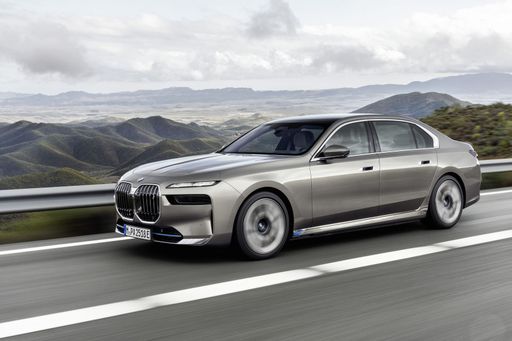
BMW i7
BMW i7
The BMW i7 is a quietly imposing electric limousine that wraps advanced tech and traditional Bavarian comfort in a futuristic skin. For buyers after serene luxury with a mischievous streak, it pampers rear-seat occupants while reminding the driver that BMW still knows how to make a big car feel alive.
details

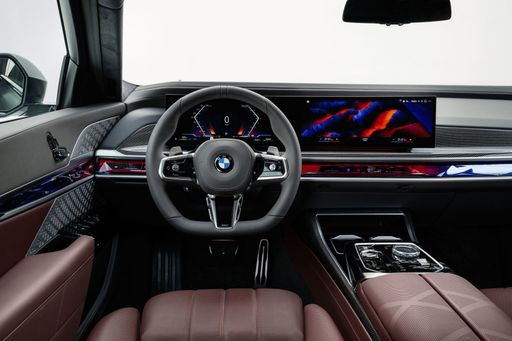
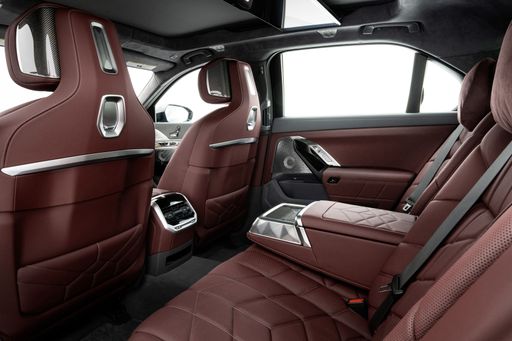
Mercedes EQS
The Mercedes EQS is a silent, spaceship-like flagship that turns electric luxury into zen on wheels, wrapped in a swooping design that insists on being admired. Inside it’s all glassy screens and soft-touch surfaces that make long trips feel like first class, and the driving experience is composed and effortless — like a courteous butler with an electric heart.
details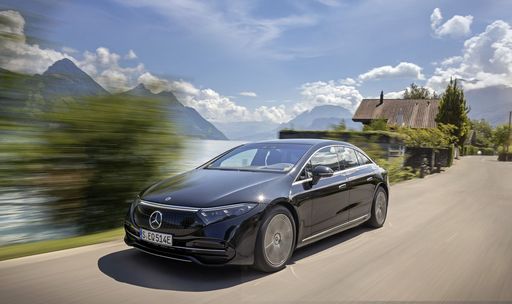
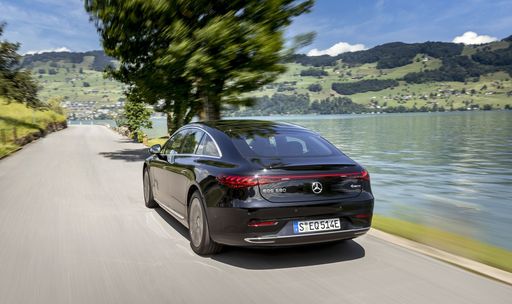
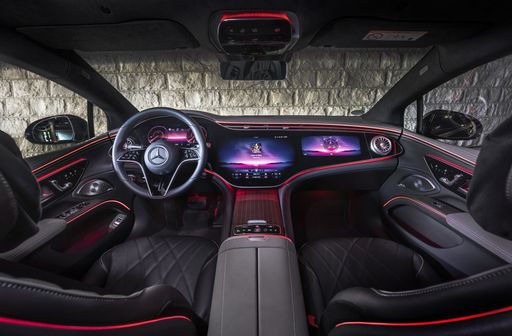
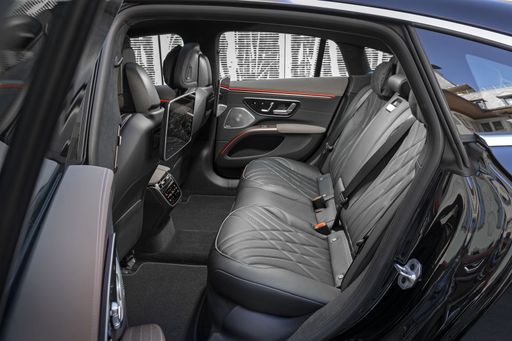
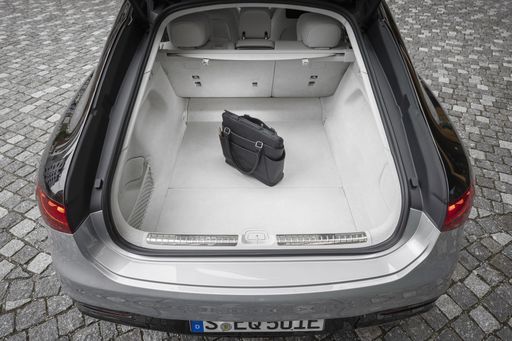
Costs and Consumption |
|
|---|---|
|
Price
99200 - 157200 £
|
Price
93900 - 123500 £
|
|
Consumption L/100km
-
|
Consumption L/100km
-
|
|
Consumption kWh/100km
18.5 - 20.8 kWh
|
Consumption kWh/100km
16.5 - 17.2 kWh
|
|
Electric Range
559 - 624 km
|
Electric Range
790 - 816 km
|
|
Battery Capacity
101.70 kWh
|
Battery Capacity
118 kWh
|
|
co2
0 g/km
|
co2
0 g/km
|
|
Fuel tank capacity
-
|
Fuel tank capacity
-
|
Dimensions and Body |
|
|---|---|
|
Body Type
Sedan
|
Body Type
Hatchback
|
|
Seats
5
|
Seats
5
|
|
Doors
4
|
Doors
5
|
|
Curb weight
2595 - 2770 kg
|
Curb weight
2545 - 2655 kg
|
|
Trunk capacity
500 L
|
Trunk capacity
610 L
|
|
Length
5391 mm
|
Length
5223 mm
|
|
Width
1950 mm
|
Width
1926 mm
|
|
Height
1544 mm
|
Height
1512 mm
|
|
Max trunk capacity
-
|
Max trunk capacity
1770 L
|
|
Payload
480 - 535 kg
|
Payload
550 - 565 kg
|
Engine and Performance |
|
|---|---|
|
Engine Type
Electric
|
Engine Type
Electric
|
|
Transmission
Automatic
|
Transmission
Automatic
|
|
Transmission Detail
Reduction Gearbox
|
Transmission Detail
Reduction Gearbox
|
|
Drive Type
Rear-Wheel Drive, All-Wheel Drive
|
Drive Type
All-Wheel Drive, Rear-Wheel Drive
|
|
Power HP
455 - 659 HP
|
Power HP
360 - 544 HP
|
|
Acceleration 0-100km/h
3.7 - 5.5 s
|
Acceleration 0-100km/h
4.4 - 6.2 s
|
|
Max Speed
205 - 250 km/h
|
Max Speed
210 km/h
|
|
Torque
650 - 1100 Nm
|
Torque
568 - 858 Nm
|
|
Number of Cylinders
-
|
Number of Cylinders
-
|
|
Power kW
335 - 485 kW
|
Power kW
265 - 400 kW
|
|
Engine capacity
-
|
Engine capacity
-
|
General |
|
|---|---|
|
Model Year
2022 - 2023
|
Model Year
2024
|
|
CO2 Efficiency Class
A
|
CO2 Efficiency Class
A
|
|
Brand
BMW
|
Brand
Mercedes-Benz
|
Is the BMW i7 offered with different drivetrains?
Available configurations include Rear-Wheel Drive or All-Wheel Drive.
